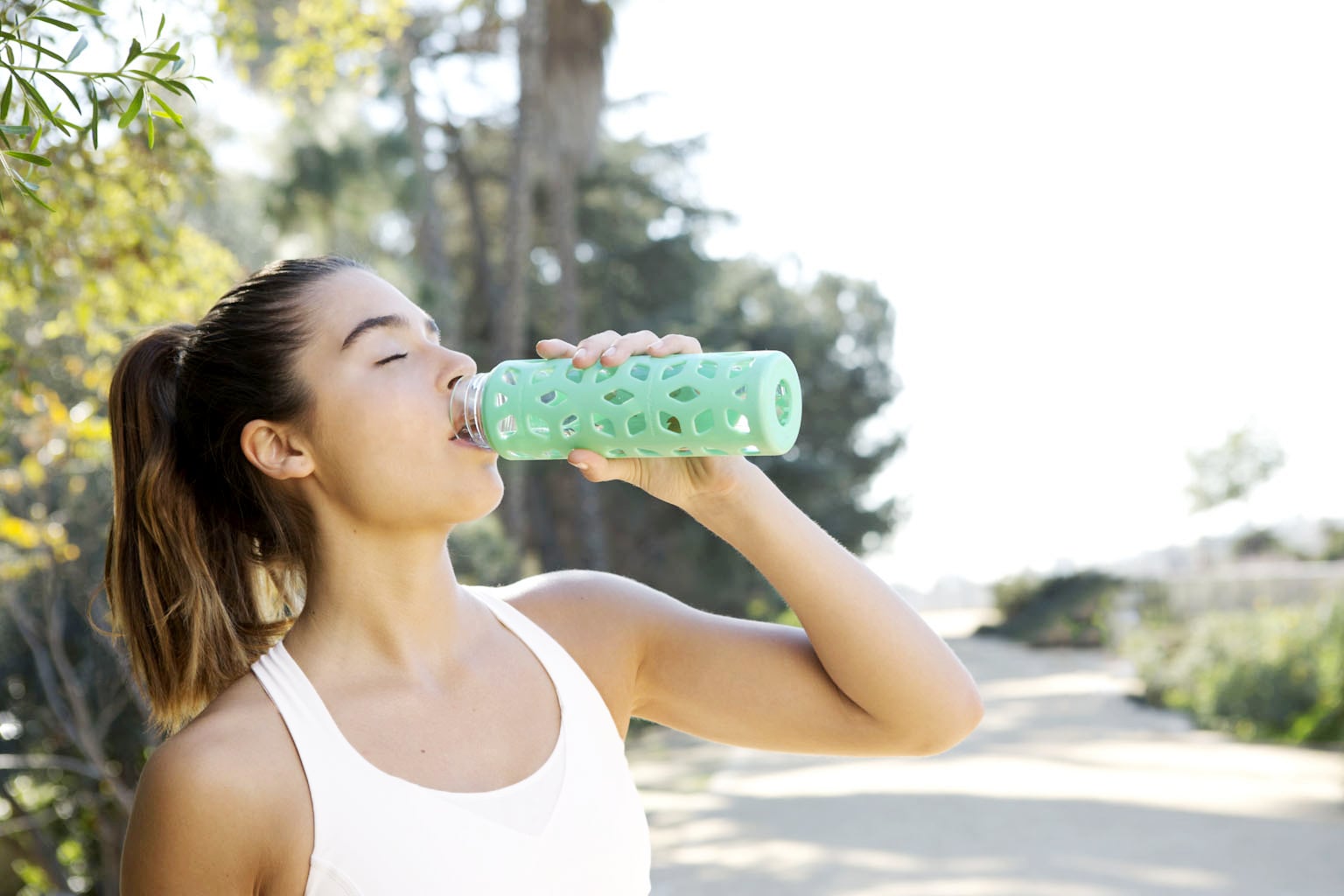Can You Drink Too Much Water?
Overhydrating Can Be Dangerous — Here Are the Side Effects

"Make sure to drink a lot of water" — we've heard it from our parents, coaches, doctors, and friends, but is it possible to drink too much water? In 2007, a woman in California died of hyponatremia or water intoxication, after taking part in a radio station's water-drinking contest. Cases like this one are rare, but it is important to be cautious of drinking an excessive amount of water in a short period of time.
We asked a dietitian for the facts behind how much you should and shouldn't be drinking.
There's Such Thing as Too Much Water
Water intoxication occurs because drinking an abnormally large amount of water flushes the system and causes sodium levels in the bloodstream to drop to a dangerously low level, said Liz Weinandy, registered dietitian at the Ohio State University Wexner Medical Centre. The body needs adequate sodium to regulate blood pressure as well as a number of important functions, such as muscle contraction. Hyponatremia is extremely dangerous and can lead to unconsciousness, coma, and ultimately death.
The Symptoms Include Nausea and Headaches
Getting to a state of hyponatremia is difficult, Weinandy told POPSUGAR. To reach the point of water intoxication, "a person would be drinking so much fluid that they would feel nauseous and they might vomit," she said. Other symptoms include headache and lethargy.
Feeling sick while drinking too much water is part of the body's system of checks and balances that works to prevent us from unknowingly harming ourselves, she said. "The thirst mechanism will kick in when our body needs more fluids, and when we've had enough or a little bit more than enough, the mechanism that makes us repel against drinking any more will also kick in." Always listen to your body and don't force yourself to drink more water if doing so is making you feel ill.
If you do experience any of the mentioned symptoms after drinking a large amount of fluid, you could be overhydrated. At that point, it's crucial to stop drinking and immediately seek treatment.
Your Limit Depends on a Few Factors
There's no universal cutoff for how much water you can drink before it becomes unhealthy. The limit for each individual person depends on gender, age, activity level, and more, Weinandy said, but staying in tune with your body's signals is key to avoiding overhydration. If your urine is nearly clear, you're adequately hydrated and don't need to drink more, she added. Pacing yourself while drinking water will also help keep the body in balance. Hydrate before, during, and after a sporting event to avoid fluid overload following exercise.
For athletes who are losing a lot of electrolytes through sweat, it's important to throw a sports drink into the mix. This will help replace necessary electrolytes such as sodium and potassium, Weinandy told POPSUGAR.
In cases of extreme thirst, call your doctor before accidentally consuming an amount of water that could put you at risk for hyponatremia.
Follow the 2 Litres a Day Rule
The amount of water you need to stay properly hydrated also depends on gender, age, and activity level, Weinandy said, but eight glasses at about 250ml each is sufficient for the average person.
But rather than following strict guidelines, Weinandy again recommends listening to your body. "I always tell people you should be drinking enough fluid to where your urine is really pale coloured," she said. "Aim for straw coloured or lighter."







